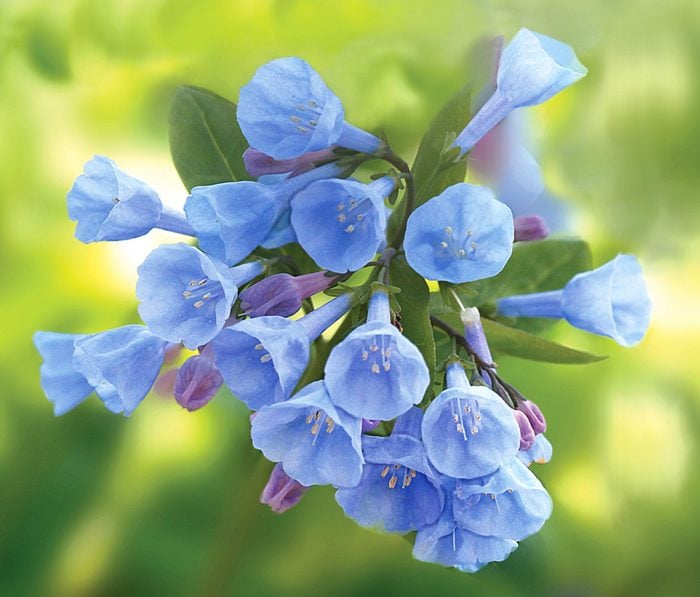
Virginia Bluebells
Mertensia virginica, Zones 3 to 9
Add some blue to those shady spots with this vigorous eastern native. Grow in moist, rich soil and combine with daffodils for a striking spring display. Add hostas and other shade-loving perennials to mask the fading foliage later in the season. Why we love it: Hummingbirds, bumblebees and other pollinators appreciate this early source of nectar. These are the best perennials to grow for hummingbirds.
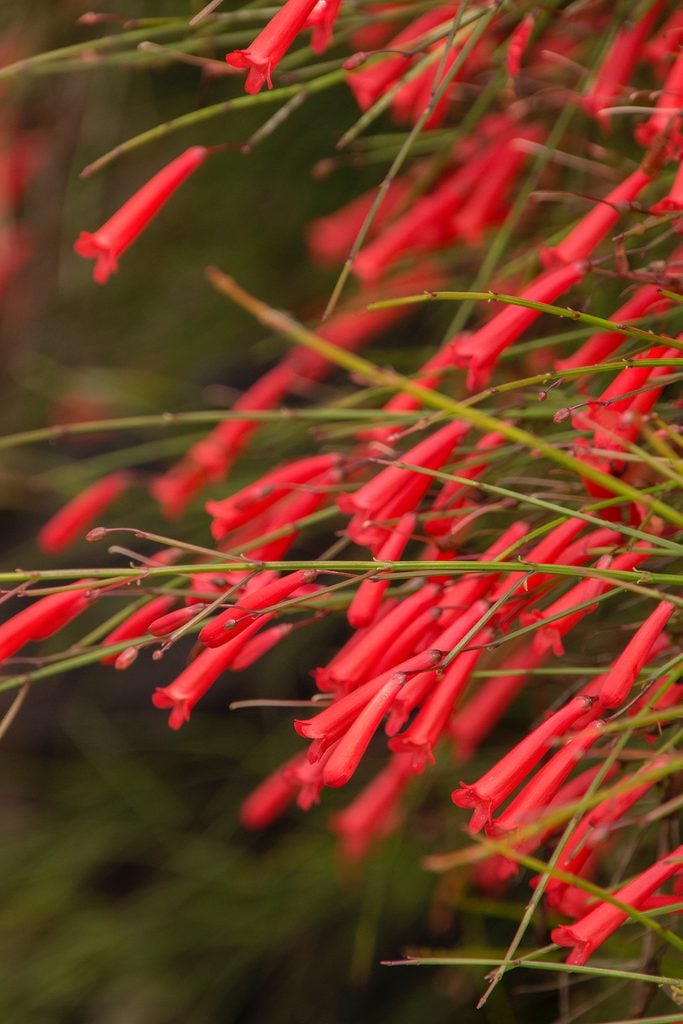
Firecracker Plant
Cuphea spp., Zones 8 to 11
Draw hummingbirds and butterflies to your back door with pots of cuphea. It comes in a range of hues, but flowers are usually tipped in red, yellow or white, resembling a lit cigar or firecracker. This 12- to 24-inch-tall plant flowers freely all summer; no deadheading needed. Why we love it: Bat face (Cuphea llavea) has unique flowers that both kids and hummingbirds adore. Check out the top 10 red flowers that attract hummingbirds. Plus, learn all about firecracker plant.
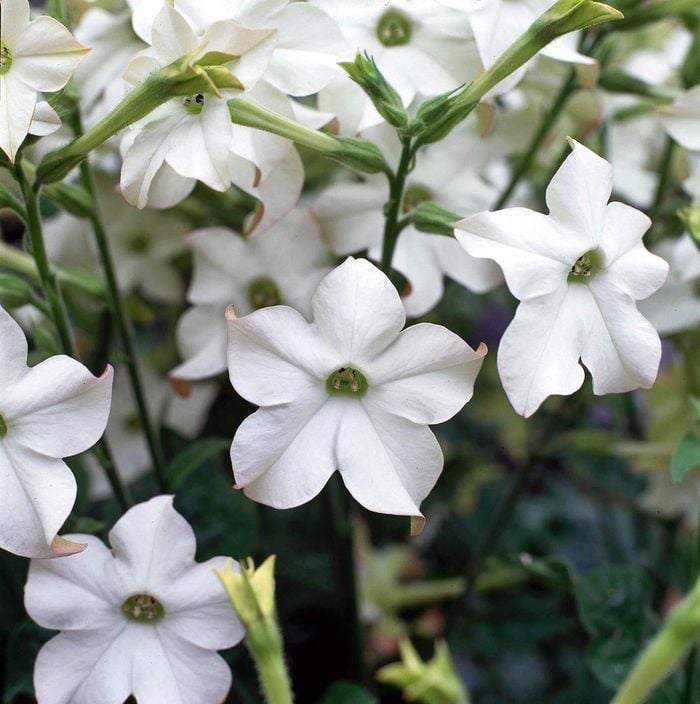
Flowering Tobacco
Nicotiana alata, annual
Plant flowering tobacco along sidewalks, next to your deck or patio, or near open windows where you can enjoy the lovely evening fragrance. This adaptable plant reseeds readily and grows best in full sun and rich soils. It also comes in a variety of colors and sizes. Why we love it: The trumpet-shaped flowers and bold leaves make it a standout in containers and garden beds. Pollinators love these super fragrant flowers.
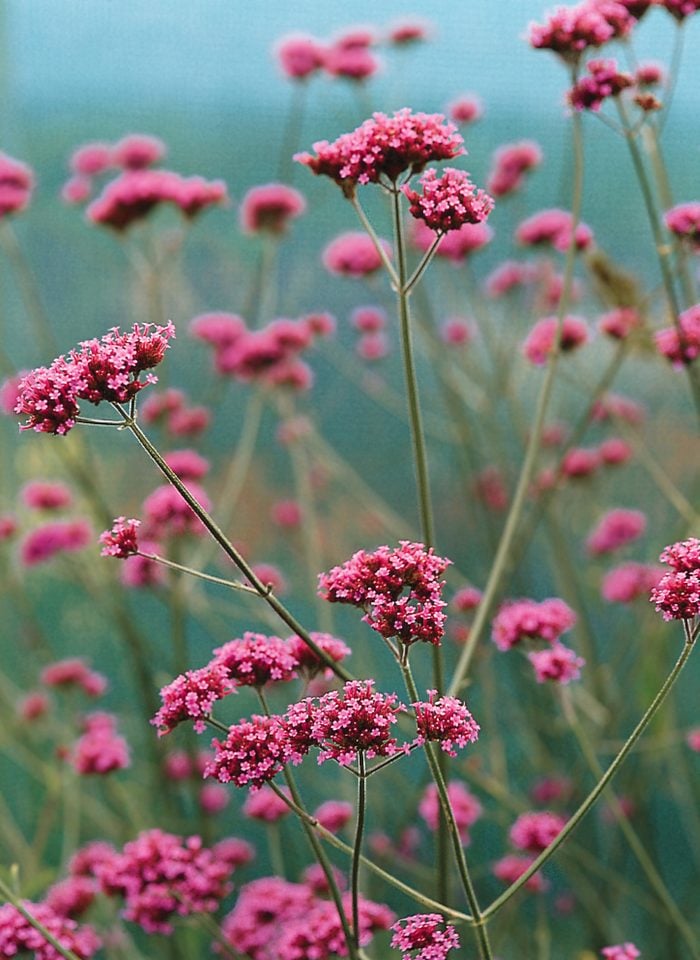
Tall Verbena
Verbena bonariensis, Zones 7 to 11
Watch as hummingbirds and butterflies flock to this beauty that grows upto 4 feet tall. Grow in full to part sun for the best season-long displays. Itreseeds readily for repeat appearances, and can be invasive in the Southeast and parts of the western U.S. and the Northwest. Why we love it: Use as a thriller in containers, allowing it to weave over the edge of the pot and through other plants to extend the bloom time.
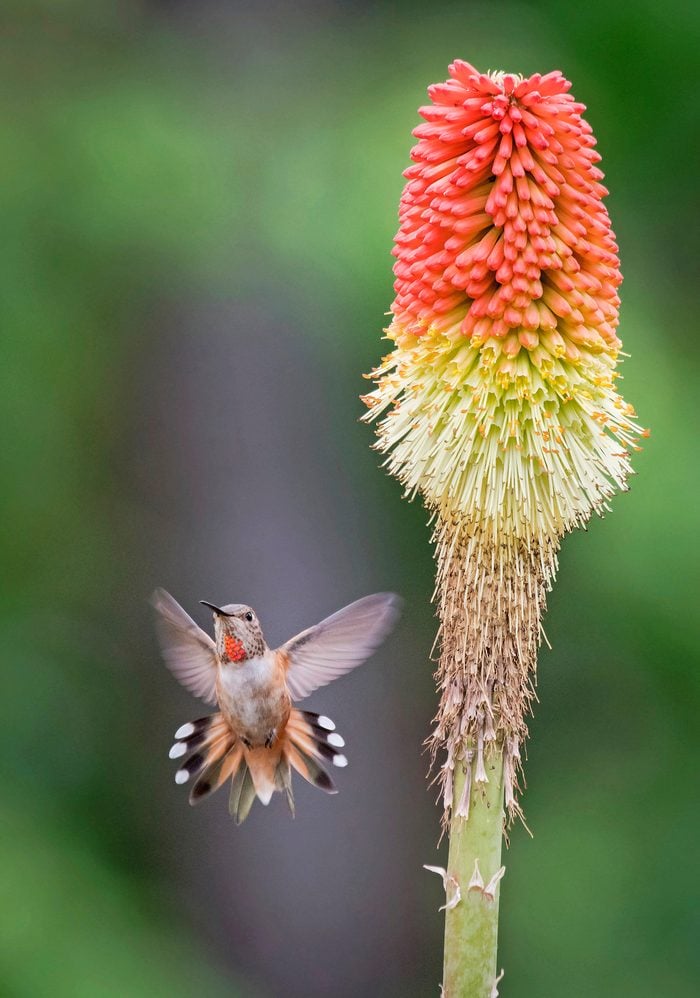
Red-Hot Poker
Kniphofia hybrids, Zones 5 to 9
Keep this sun-loving perennial happy with well-draining soil and clusters of red, orange, cream or white flowers will appear in summer. They make great cut flowers, but you’ll want to leave plenty for the hummingbirds, bees and butterflies to enjoy. Why we love it: You only need a few plants to make an absolutely stunning display. Here’s how to attract hummingbirds to your balcony.
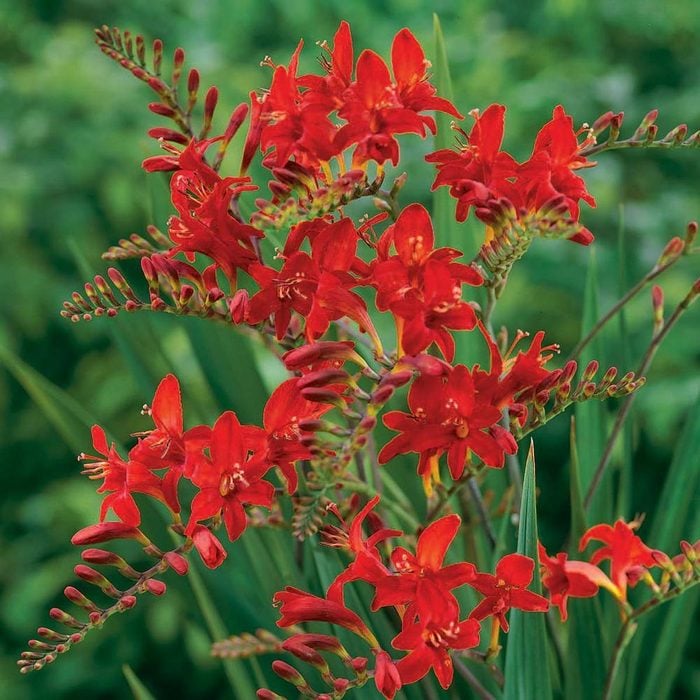
Crocosmia
miacrocosmia spp., Zones 5 to 9
Ignite your summer garden with long graceful sprays of brilliant orange-red flowers. Grow in full sun and moist soil. Northern gardeners can dig up the corms in fall and overwinter them in a cool, dark location. Why we love it: Lucifer’s deep orange-red flowers top 4-foot-tall plants for dazzling focal points.
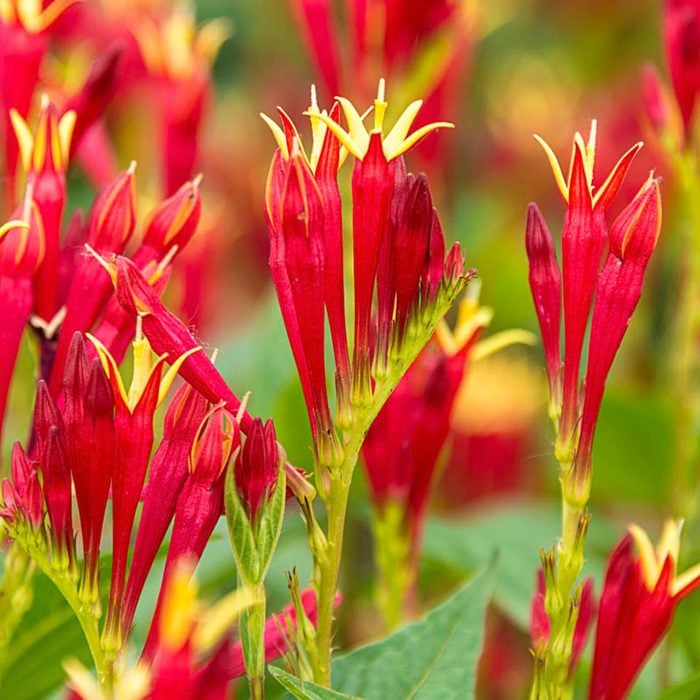
Indian Pink
Spigelia marilandica, Zones 4 to 8
Often overlooked, this greater southeastern native is considered a hummingbird favorite by gardeners who have grown the colorful plant. It flowers in late spring to early summer and does best in shade gardens with moist soil and light shade to part sun. Why we love it: The vibrant red and yellow flowers of Little Redhead are sure to increase this plant’s popularity and availability at stores. Follow these expert tips for attracting hummingbirds.
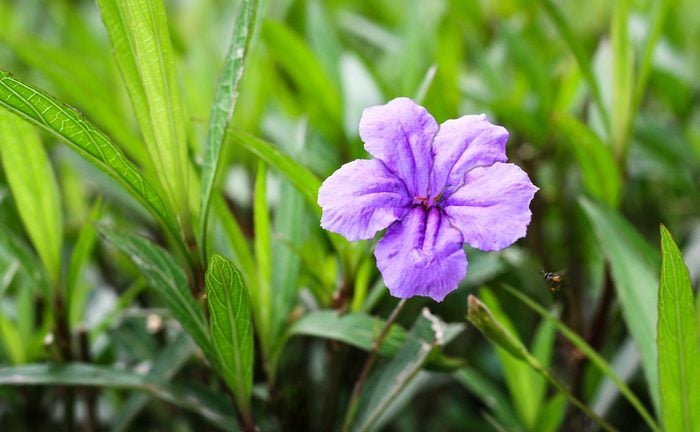
Wild Petunia
ruellia humilis, Zones 4 to 8
Each blue flower lasts only one day but is quickly replaced, creating season-long color. It reseeds readily, so grow it where it can weave through and commingle with neighboring plants, or deadhead it to prevent reseeding. Grow this 12-inch-tall plant in full sun or a spot with late-afternoon shade. Why we love it: It’s deer and rabbit resistant and adaptable to dry and wet soil.
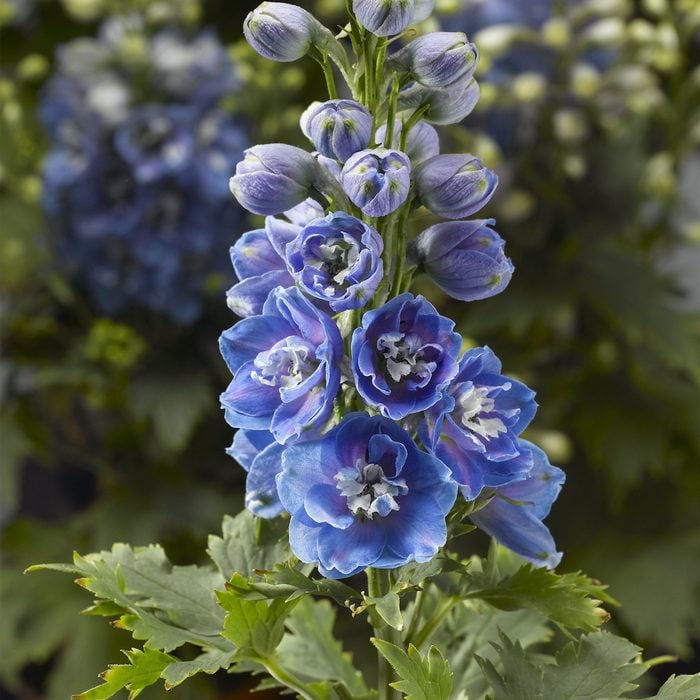
Larkspur
delphinium spp., Zones 3 to 7
Although it’s a bit picky, larkspur is well worth the effort when spires of blue flowers reach for the sky. Delphiniums require full sun and organic, moist, well-draining soil. Avoid planting it in windy locations, and cut it back around midsummer for a second set of flowers. Why we love it: Delphinium eltatum is native in the East and sturdy enough to grow in Zones 4 to 8. Hummingbirds flock to these colorful blooms.
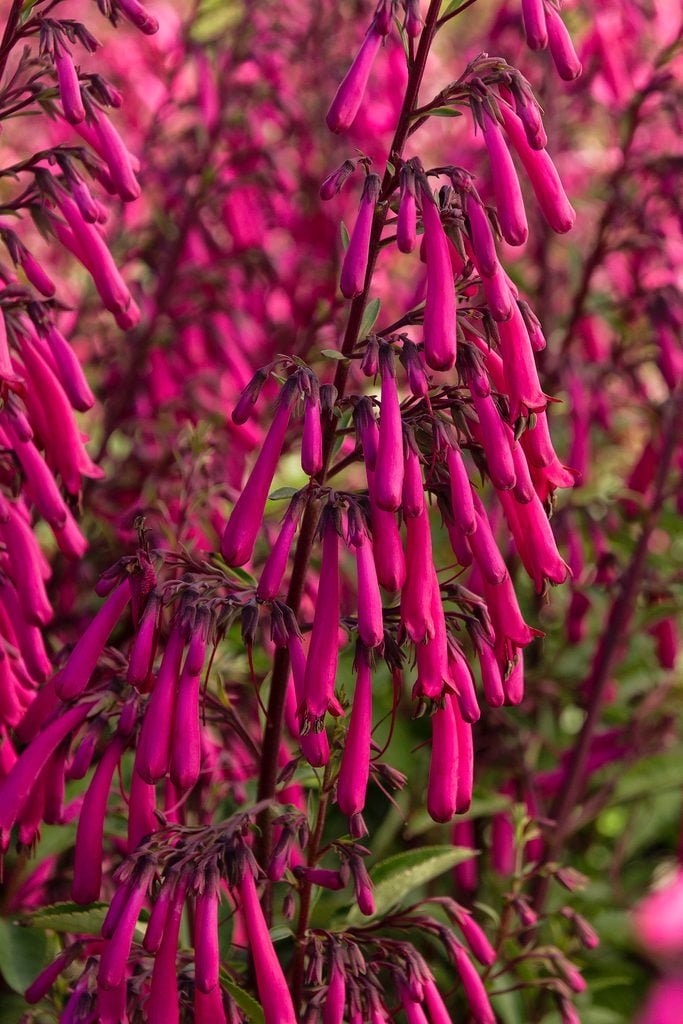
Cape Fuchsia
phygelius capensis, zones 6 to 10
Give this upright, shrubby plant room to grow and to show off its floral display. It reaches 3 to 5 feet tall and wide, and sports red tubular flowers held in 12- to 18-inch clusters. Enjoy the beauty of these fuchsia-hued flowers in locations with full sun and moist soil. Why we love it: The flowers of this hardy perennial consistently bring in hummingbirds summer through fall. Here’s how to plant a container garden for hummingbirds.
